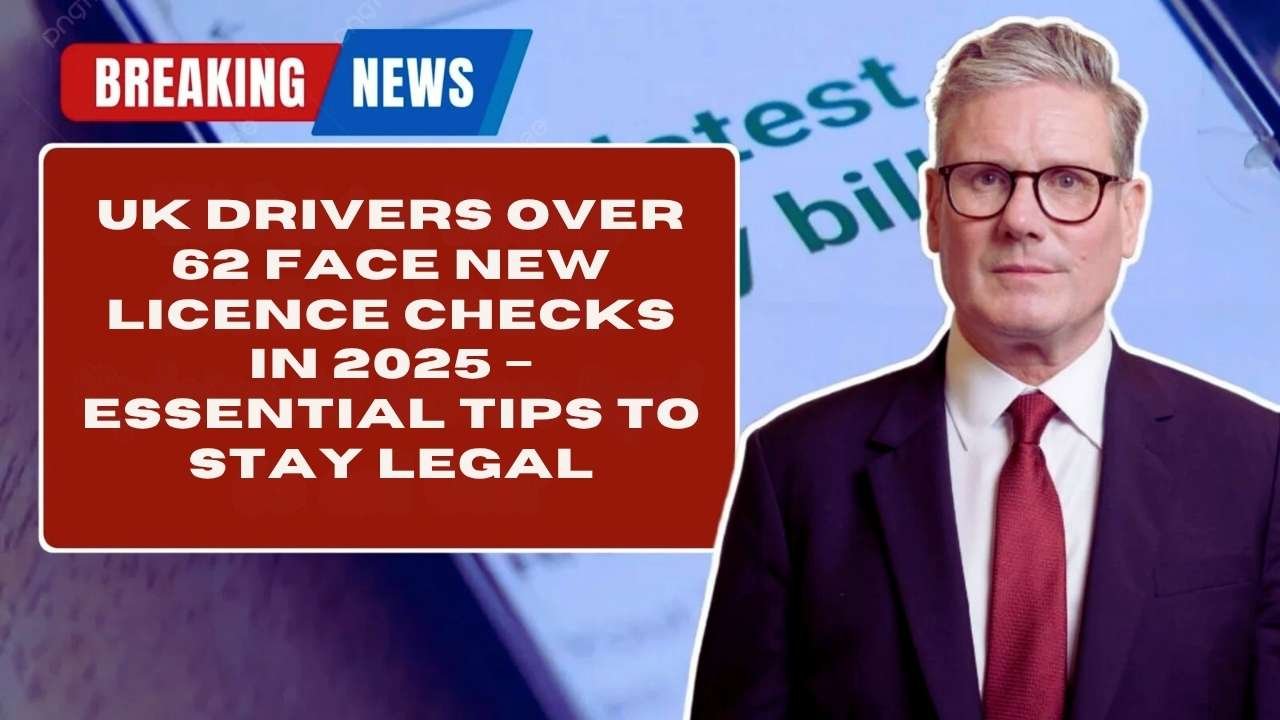As autumn sets in across the UK, older drivers are getting a nudge from the DVLA about fresh rules shaking up how they keep their licences. From early October 2025, folks aged 62 and above must renew their driving permits every three years, down from the old ten-year stretch. This shift, kicked off on 6 October, aims to boost road safety by catching health hiccups sooner. With over five million seniors still behind the wheel, the change could mean more paperwork but also peace of mind for everyone on the roads. Charities like the RAC Foundation reckon it’s a smart move, though some pensioners groups grumble about the extra hassle. Either way, if you’re 62 or turning it soon, it’s time to sort your details before notices drop through the letterbox.
Key Shifts in Renewal Rules
The heart of these 2025 tweaks is bringing forward checks that used to wait until 70. Now, at 62, you’ll get a reminder six months ahead of renewal to tick off medical and eyesight bits. No more coasting for a decade; it’s three years from here on in, with a self-declaration form to say you’re fit to drive. The DVLA says this catches issues like dodgy vision or heart troubles early, cutting accident risks. Digital renewals are pushed hard too, with a new app letting you flash your licence on your phone instead of fumbling for the photocard. For those not keen on screens, post or phone options stay open. Early birds get the worm here – renew ahead to dodge queues and keep driving without a hitch.
Who Counts and What Proof You Need
These rules hit anyone with a standard car licence who’s 62 by the end of 2025. That covers most everyday drivers, from nippy city runs to countryside jaunts. Joint renewals work for couples if one’s over the line. You’ll need to show you’re clued up on your health, listing any meds or conditions like diabetes that might play up. GP sign-off isn’t always needed at first, but if flags pop, expect a deeper look. Vision’s non-negotiable: read a plate from 20 metres, backed by an optician’s note from the last year. Skip it, and you risk a £1,000 fine or worse, like losing your wheels altogether. It’s all about fair play, not prying.
| Renewal Basics | Quick Facts |
|---|---|
| Age Threshold | 62+ as of 1 January 2025 |
| Frequency | Every 3 years (was 10) |
| Cost | £17 for 62-69; free over 70 |
| Key Checks | Health self-declare + eyesight proof |
| Penalty for Delay | Up to £1,000 fine or suspension |
Step-by-Step: How to Renew Without the Faff
Getting sorted is dead easy if you plan ahead. Log onto the GOV.UK site or ring the DVLA helpline at 0300 790 6801 – lines are busy, so mornings are best. Fill the online form with your licence number, National Insurance bit, and address. Snap a fresh photo if your old one’s knackered, and upload that eye test slip. Pay the £17 fee online if you’re under 70; over that, it’s gratis. Post it all off if tech’s not your bag, using the envelope they send. Approval comes in two weeks, with your new card landing soon after. If health worries crop up, chat to your doc for advice – they can guide on what counts as fit. Local motoring clubs offer free workshops to walk you through it, especially in spots like rural Wales or Scotland.
Penalties and Support on Offer
Mess up and it stings: drive without a valid licence post-renewal, and you’re looking at points on your record or a court date. But the DVLA’s not out to get you – they want safe roads, not empty ones. If renewal’s denied, appeals are straightforward with more medical evidence. On the bright side, insurers might cut premiums for those passing checks, seeing you’re up to scratch. Age UK and similar outfits have helplines for a natter, plus grants for eye tests if cash is tight. The government’s chucking in awareness ads on telly and radio, targeting over-60s mags too. It’s a nudge towards longer, safer motoring, not a full stop.
Why These Changes Hit Home for Older Drivers
For many in their 60s and beyond, the car is freedom – nipping to the shops, visiting grandkids, or just a Sunday spin. These rules keep that going by weeding out risks before they turn nasty. Stats show seniors crash less than young hotheads, but age-related slips like slower reactions do creep in. By starting checks at 62, the hope is fewer tragedies and more confidence. Critics say it’s ageist, but backers point to lives saved. As we roll through 2025, this could spark chats on broader senior perks, like cheaper fuel or adapted vehicles. If you’re over 62, grab your specs and get renewing – it’s your ticket to keep cruising.
